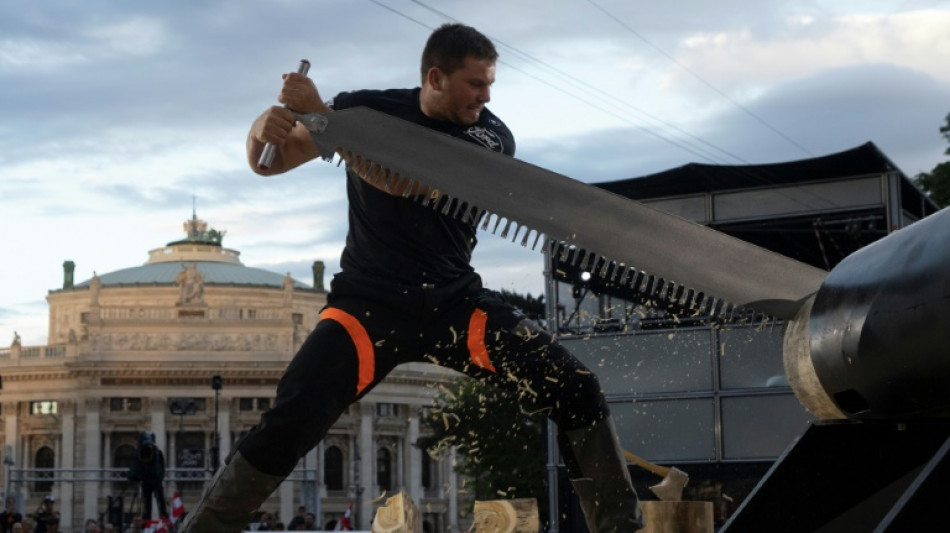

Lumberjack athletes battle for woodcutting crown
Sixteen athletes from around the world sent woodchips flying on Saturday in an unusual competition, as they battled it out in Vienna for the Timbersports World Trophy.
On a stage in front of the Austrian capital's imposing city hall, spectators looked on as the entrants faced off against each other to chop up wood as quickly as possible in a variety of disciplines, using different axes and saws.
"Most of the competitors are lumberjacks or work in forestry," said Jean-Noel Raynaud from Stihl France, the company that organises the competition.
Marcel Dupuis, a 36-year-old Canadian weighing in at 110 kilogrammes (242 lb) and 1.80 metres tall (6ft), has been steeped in this world since an early age.
"I've always been interested in this because I cut wood all my youth," he told AFP, adding that though he is a fireman in his day job, "several generations" of his family have poured their heart and soul into woodcutting.
"It's something I'd like to pass on to my children. It's part of life, part of nature," he says.
Frenchman Pierre Puybaret also has fond memories of gathering wood with his parents in his native Correze region.
Even though he pursued a career as a hydraulic mechanic, when he discovered competitive woodcutting in 2010 he quickly became addicted.
The 35-year-old explains he was attracted by "the range of tasks" one is expected to master in a discipline which demands both "brawn and technique".
-'Original extreme sport'-
Though not part of Saturday's event, perhaps the sport's most spectacular event is the "springboard" where competitors have to hack slots into a 2.8m-high trunk.
Showing off dexterity and balance, they then jam planks of wood into those same slots in order to swing onto them and climb to the top.
"It's a complete sport, like a biathlon," says Puybaret, a six-time French champion.
Raynaud says the scene in France is still relatively modest, with around 80-100 athletes in seven clubs across the country.
"It's not something you can make a living from because the prizes aren't big enough," says Puybaret, who has had to set up his own site for training and get a truckload of wood delivered at the beginning of each competition season.
The sport is better developed in its birthplace Australia, as well as in New Zealand and Canada, countries which regularly supply the sport's champions.
Christopher Borghorst, spokesman for the Timbersports competition, explains that the sport has a pedigree stretching back to the 1870s Down Under, adding: "This is also why we call it the original extreme sport."
Indeed on Saturday it was a New Zealander, Jack Jordan, who clinched the World Trophy, with American Jason Lentz finishing second and Australia's Brad De Losa third.
S.Olivares--LGdM




